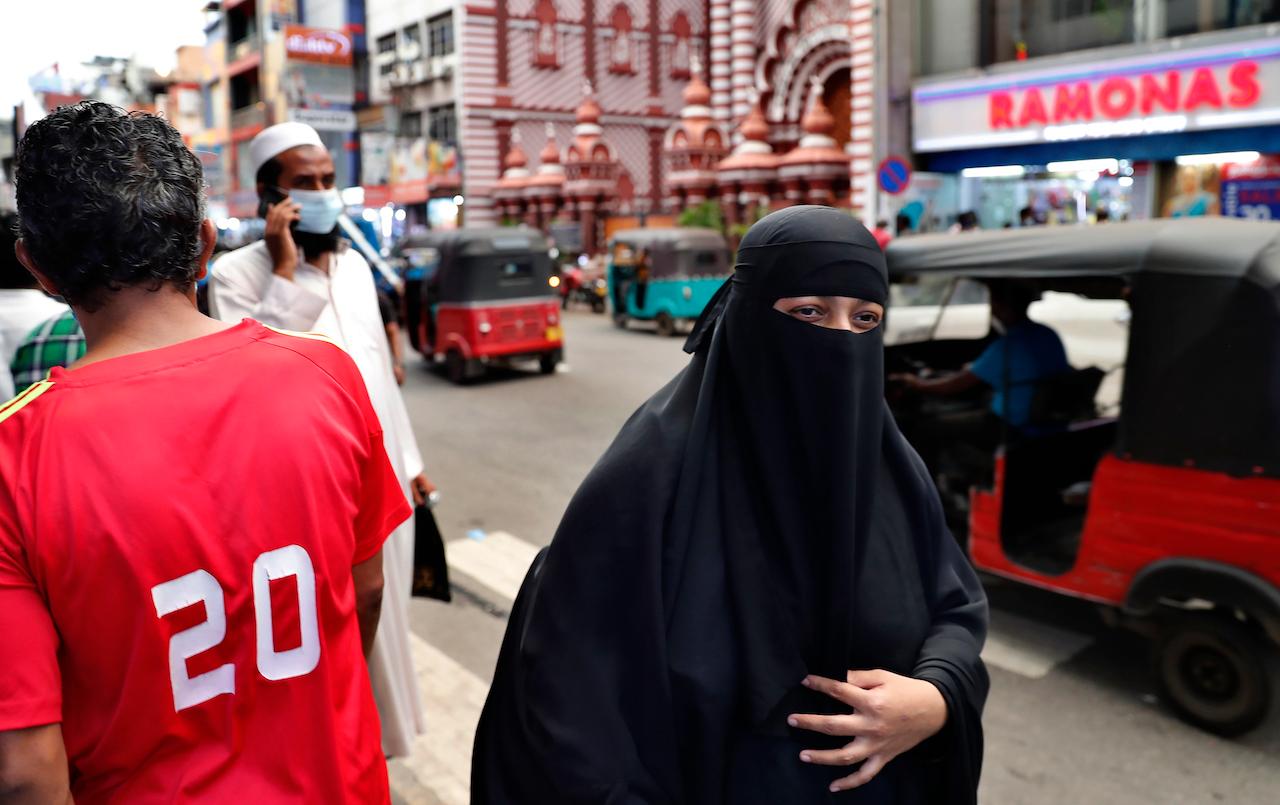Sri Lanka to ban burqa on ‘national security’ grounds, says minister
Around 1,000 Islamic schools will also be shut for not being properly registered and not following the national curriculum.
Just In
Sri Lanka will ban the wearing of the burqa and shut more than a thousand Islamic schools, a government minister said on Saturday.
Minister for public security Sarath Weerasekera told a news conference he had signed a paper on Friday for cabinet approval to ban the full-face covering worn by some Muslim women on “national security” grounds, CNN reports.
“In our early days Muslim women and girls never wore the burqa,” he said. “It is a sign of religious extremism that came about recently. We are definitely going to ban it.”
The wearing of the burqa in the majority-Buddhist nation was temporarily banned in 2019 after the Easter Sunday suicide bombings of churches and hotels by Islamic militants that killed more than 250.
Two local Muslim groups that had pledged allegiance to the Islamic State group were blamed for the attacks at six locations – two Roman Catholic churches, one Protestant church and three top hotels.
Government ministers said at the time that they believed the attacks were in retaliation for the Christchurch mosque shootings on 15 March 2019
Later that year, Gotabaya Rajapaksa, best known for crushing a decades-long insurgency in the north of the country as defence secretary, was elected president after promising a crackdown on extremism.
The government also plans to ban more than a thousand madrassa Islamic schools that are flouting national education policy, Weerasekera said
“Nobody can open a school and teach whatever you want to the children,” he said.
The government’s moves on burqas and schools follow an order last year mandating the cremation of Covid-19 victims, against the wishes of Muslims, who bury their dead.
This ban was lifted earlier this year after criticism from international rights groups.
ABC News is reporting that a Pakistani diplomat and a UN expert have expressed concerns over Sri Lanka’s proposed move to ban the wearing of burqas.
Pakistan’s ambassador to Sri Lanka, Saad Khattak, tweeted on Monday that the ban would “only serve as injury to the feelings of ordinary Sri Lankan Muslims and Muslims across the globe”.
The United Nations’ special rapporteur on freedom of religion or belief, Ahmed Shaheed, tweeted that the “burqa bans are incompatible with int’l law guarantees of the right to manifest one’s religion or belief & of freedom of expression”.
Muslims make up about 10% of the 22 million people in Sri Lanka, where Buddhists account for more than 70% of the population. Ethnic minority Tamils, who are mainly Hindus, comprise about 15% of the population.
Subscribe to our newsletter
To be updated with all the latest news and analyses daily.
